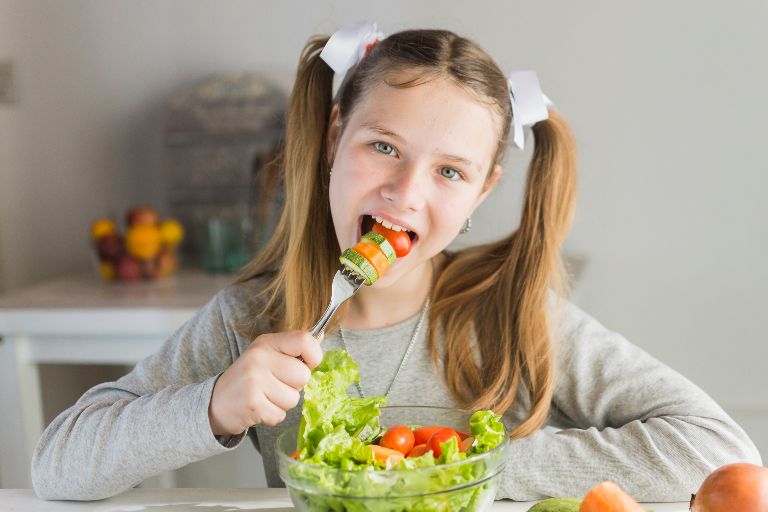Being in pain due to bad teeth or jaw issues while you go about your daily activities can cause a lot of stress. That stress can aggravate conditions like TMJ disorder, even more, causing even more damage to your oral health and overall health. You can’t chew your food properly if you have bad teeth, causing bloating and gas and even more stress.
Changing your eating habits, and avoiding certain foods and practices, like forceful chewing, can really help alleviate some of the pain, but good oral health practices and regular dental checkups are the best ways to make sure you’re staying healthy.
Proper food processing starts with proper mastication. So let’s look at it.
According to Wikipedia:
“Mastication is the process by which food is crushed and ground by teeth. It is the first step of digestion, and it increases the surface area of foods to allow a more efficient breakdown by enzymes. During the mastication process, the food is positioned by the cheek and tongue between the teeth for grinding. The muscles of mastication move the jaws to bring the teeth into intermittent contact, repeatedly occluding and opening. As chewing continues, the food is made softer and warmer, and the enzymes in saliva begin to break down carbohydrates in the food.”
To put it simply, it’s the chewing of food. It’s a very important step in food digestion. Your stomach does not have teeth. If you don’t chew your food properly, your digestive system won’t be able to break it down. Badly chewed food takes longer to digest and can cause bloating, gas and even nausea. It can even remain completely undigested, leaving you without those nutrients. Chewing slowly increases the alkalinity of the food, which is very important. Many people suffer from acid reflux, heartburn and indigestion. This shift in alkalinity can help with that.
While different studies show how to get a stronger jawline through forceful chewing if you already have bad teeth and jaw issues it’s best to avoid forceful chewing. It can cause ear and jaw pain while chewing, as well as cracked teeth.

That was a shortlist of what foods are bad for your teeth. The gist of it is: avoid hard, sticky sugary foods. Sugar, through bacteria, damages your enamel, while hard and sticky foods can cause chipped or cracked teeth, and worsen any jaw issues.
So what can you eat when you already have a dental problem, and not make it worse?
Just because you have problems with chewing doesn’t mean you should eat only mashed potatoes and scrambled eggs. Chewing issues shouldn’t stop you from trying to eat as healthy as possible.
Vegetables and Fruit:
Grains:
Meat, Milk etc. and their alternatives:
OK, now you know what foods you can eat without chewing so that you don't make your dental situation worse, but that is not exactly a solution. Let’s look at what you can do to fix that situation.

We cannot emphasise enough the importance of a regular dental check-up. They can identify cavities and other dental conditions before they cause troubling symptoms and lead to more serious problems.
If you suspect you have some teeth problems, see a dentist as soon as possible. The sooner you seek care, the less invasive treatments need to be.
Treatment options include:
There are some home remedies that may keep cavities from getting bigger and prevent new ones from forming, like sugar-free gum, liquorice root, oil pulling etc. These methods are not a substitute for good oral hygiene and regular checkups.
Avoiding sugary, sticky and hard food, maintaining good oral hygiene and proper professional dental care is the only way to stay healthy.

